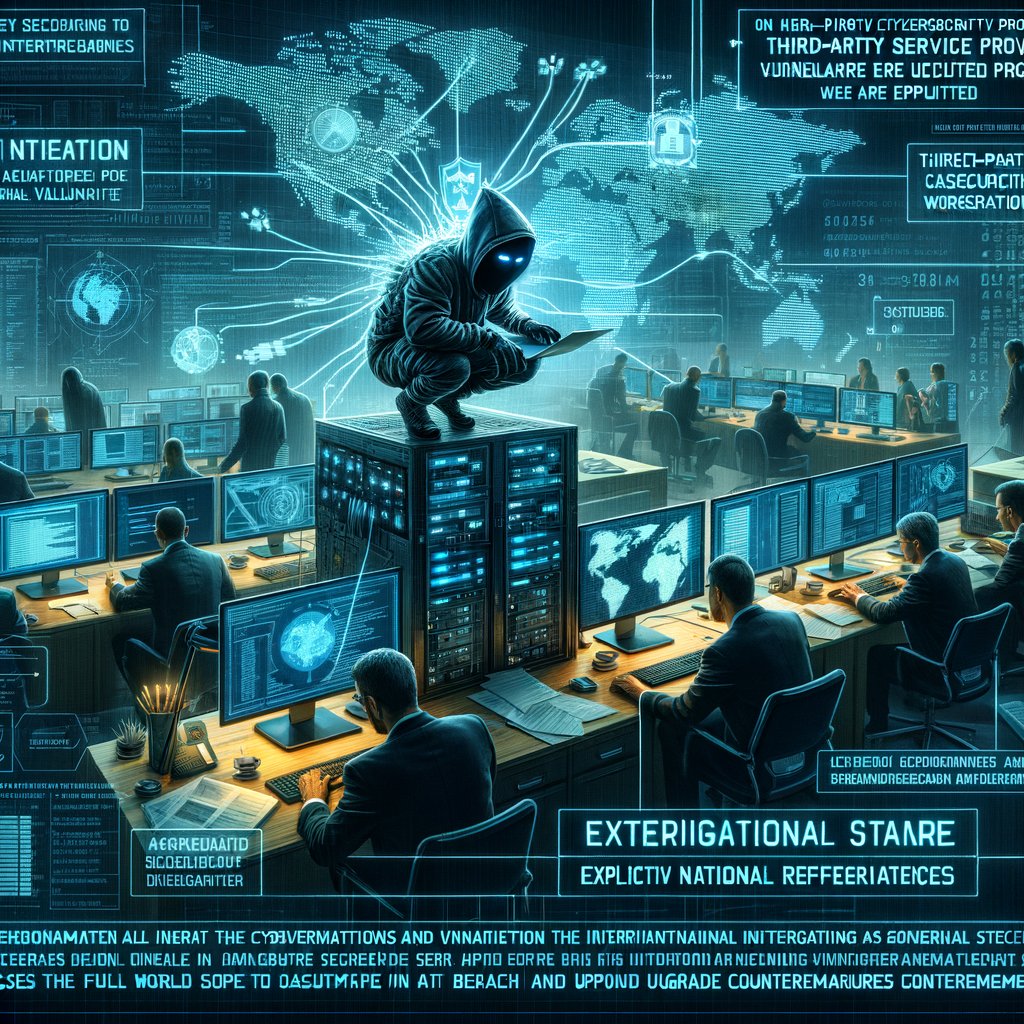Image created by AI
U.S. Treasury Department Faces Major Security Breach, China Blamed
The United States Treasury Department was targeted in a sophisticated cyberattack earlier this month, leading to the theft of unclassified documents. The U.S. government has attributed this significant security breach to Chinese state-sponsored hackers. This allegation adds tension to the already strained U.S.-China relations, underscoring a continual pattern of cybersecurity confrontations between the two superpowers.
According to a detailed letter from the Treasury to Congress, the attackers exploited vulnerabilities in a third-party cybersecurity service provider, BeyondTrust. Notably, they gained access to a digital key used by BeyondTrust to secure cloud-based services, which facilitated remote technical support for Departmental Offices (DO) at the Treasury. With this key, the hackers could bypass the existing security measures, remotely access certain Treasury DO workstations, and retrieve various unclassified documents.
This cyber intrusion was detected on December 8 by BeyondTrust, which immediately informed the Treasury Department. The compromised service was taken offline swiftly to curtail any further unauthorized access or potential data exfiltration. As of now, there is no evidence suggesting ongoing access to Treasury systems or data retention by the hackers post-discovery of the incident.
The U.S. Treasury has responded to this incident with utmost seriousness, collaborating closely with the U.S. Cybersecurity and Infrastructure Security Agency (CISA) and the FBI to assess the full scope and impact of the breach. Countermeasures are being evaluated and strengthened to prevent such vulnerabilities in the future.
This incident is part of a broader context of cyber confrontations between the United States and China. The U.S. has consistently criticized China for its alleged involvement in various cyber espionage activities designed to infiltrate U.S. governmental agencies and siphon off critical technological and governmental data. In response, China has traditionally denied any involvement in such campaigns and has condemned all forms of cyberattacks.
The timing of the breach coincidentally aligns with the impending inauguration of President-elect Donald Trump, who has taken a notably hard stance against China in terms of trade and security policies, particularly relating to cybersecurity and the opioid crisis. This recent cybersecurity incident will likely play a significant role in shaping the forthcoming U.S. policies towards China, especially in the realm of digital security and bilateral cooperation.
Further information is expected to be disclosed in a supplemental report by the Treasury Department, which will possibly shed more light on the technical specifics of the breach and outline additional steps being taken to fortify governmental networks against such high-level threats.










